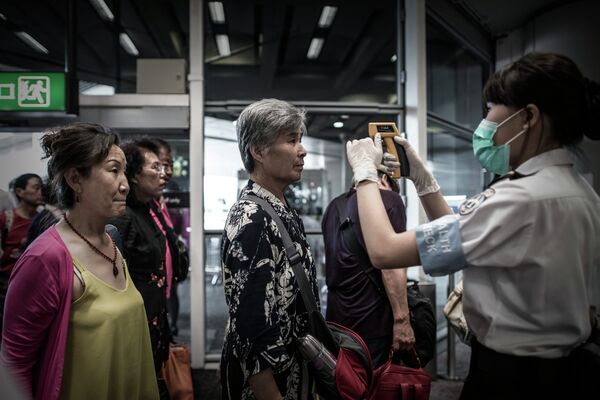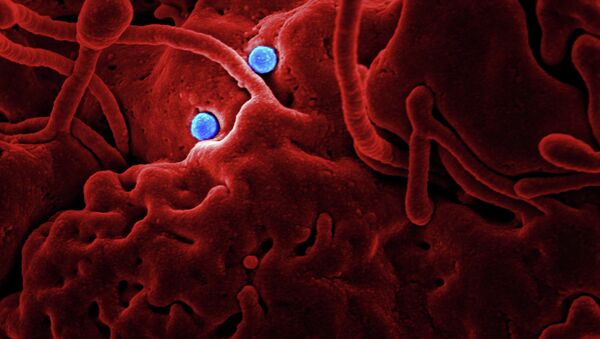The patient — a resident of the Middle East, whose name, age and gender cannot be released — flew into Manchester airport, was subsequently diagnosed at a hospital in Leeds, before being moved to a specialist centre in Liverpool.
MERS, caused by the Middle East Respiratory Syndrome coronavirus, kills a third of those it afflicts — it has no known cure, and is considered one of the 10 most urgent threats to humanity by the World Health Organization, along with alarming viruses Ebola and Zika, which have both caused brutal pandemics in since 2014.
Poorly understood by virologists, MERS produces many of the same symptoms as a common cold — but can fatally lead to pneumonia and kidney failure. It can be spread by touching infected camels, or infected individuals.
An individual has been diagnosed with Middle East Respiratory Syndrome (MERS) in England, after travelling from the Middle East. We are asking people travelling from the Middle East to be aware of the symptoms of MERS. Our blog has more information: https://t.co/Y9qBcnWxkV pic.twitter.com/0tUfZWctF3
— Public Health England (@PHE_uk) August 23, 2018
As a result, Public Health England are seeking to contact anyone who had "close and sustained" contact with the patient — particularly those who flew from Jeddah with Saudi Arabian Airlines on flight SV123 August 16.
A Rarity
It's only the fifth case of MERS to be diagnosed in England — but comes not long after Public Health England warned the risk of "imported cases" in the UK was high and rising, and health professionals "should remain vigilant".
In particular, the organization expressed anxiety over Muslim Britons contracting the virus during ‘Hajj' or ‘Umrah' — pilgrimages to Mecca that every Muslim's duty to complete. Around four million Muslims from around the world take part in the former each year, with an estimated 25,000 hailing from the UK.

In all, around 2,230 cases of MERS and 791 deaths have been reported to the WHO since it was first identified in 2012.
Worrying
The troubling news follows mere hours after the first case of donovanosis — a rare sexually transmitted disease causing flesh-eating ulcers to appear near an individual's genitals — was diagnosed in the UK. The STD is typically only found in tropical regions, including parts of India, Papua New Guinea, the Caribbean, central Australia and southern Africa.



